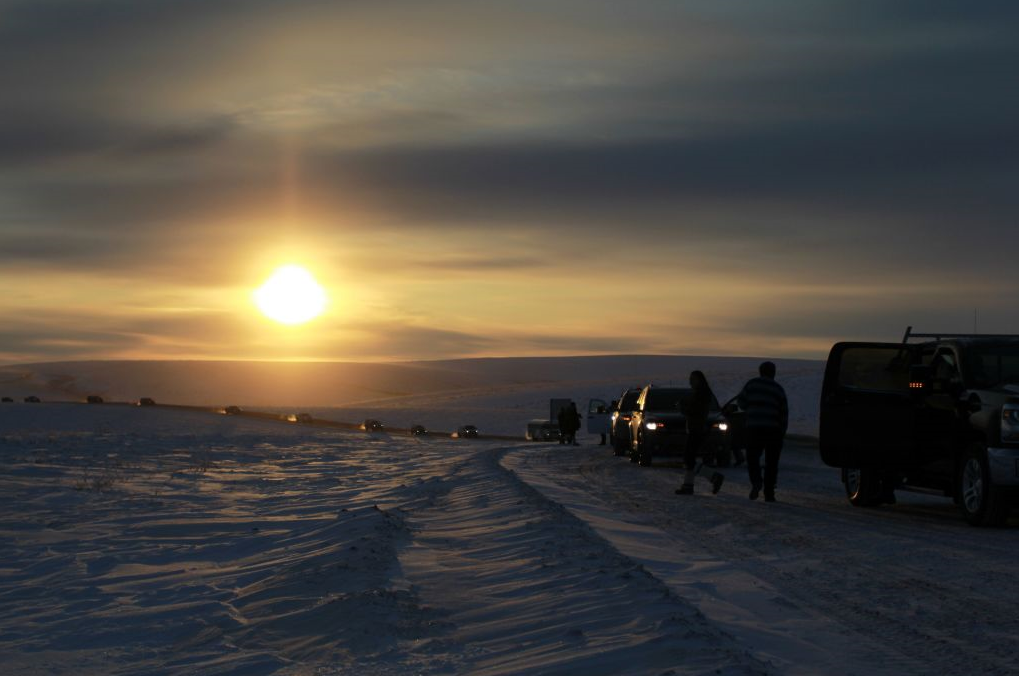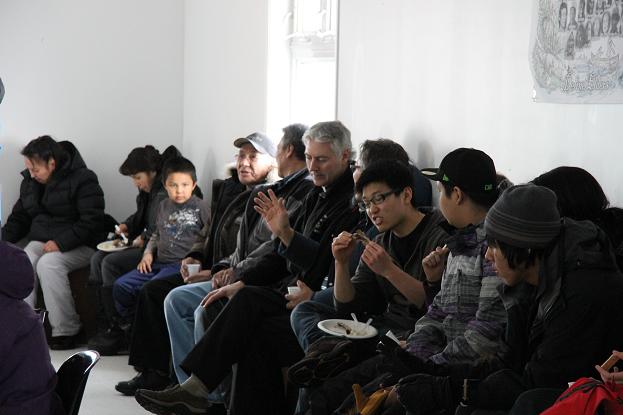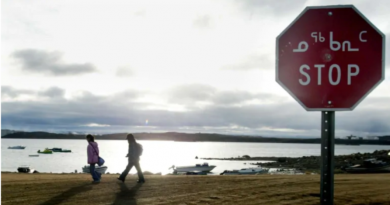North American Arctic is failing compared to Russia, Nordics, warns think tank

Weak national leadership in the North American Arctic is hindering northern development compared to the thriving polar regions of Russia and the Nordics, says a Canadian think tank in a new report.
“Canada has a romantic, folkloric ideal of the Arctic which is not in close accord with reality,” John Higginbotham, a senior fellow at the Centre for International Governance Innovation (CIGI), told Eye on the Arctic in a telephone conversation this week.
“We’re attached to a vision of polar bears and Inuit in kayaks. But what is lacking in this country is a broad understanding of how challenging the environment is going to be because of climate change.”
Other countries, both Arctic and non-Arctic, are increasing investment and interest in the North while Canada, and other areas of the North American Arctic like Alaska and Greenland continue to fall behind, said Higginbotham, co-author of the report The North American Arctic: Energizing Regional Collaboration and Governance, along with Jennifer Spence.
“Russia is decades ahead of Canada when it comes to oil and gas development and the development of the Northern Sea Route,” he said. “The Nordics have found a good balance between environmental responsibility and economic development. Canada is paying, frankly more attention to governance and identity issues than to the fundamental development of economic infrastructure on which any long term solution to the social and economic problems of the Canadian Arctic (will be made).”
Climate’s creeping impact

Russia has made significant investments in Arctic oil and gas exploration, including the Yamal LNG plant, located on the Yamal Peninsula in Russia’s Far North. It’s also invested heavily in the Northern Sea Route, a waterway bridging Asia and Europe that passes through the country’s Arctic.
Norway has also invested heavily in offshore Arctic drilling.
Major commercial shipping powers like China also continue to develop significant icebreaker capacity and signal increasing interest in the North as climate change makes the region more accessible.
“These are dynamic factors that contain both challenges and opportunities for Canada, but we aren’t having a discussion about how to respond to any of these outside forces or how to make our own Arctic a better place,” Higginbotham said.
“Roads, energy projects, deep waters ports require long-term political and economic commitment and though the Canadian government has made reconciliation with Indigenous Peoples a priority, there’s been little talk about concrete measures that could lead to sustainable economic reconciliation.”
East-West cooperation

With only three federal Members of Parliament in Canada’s Arctic territories compared to the hundreds of federal, provincial and municipal representatives in the South, Higginbotham says creating stronger ties between Arctic regions and sub-national governments would be a first step to strengthening northern voices on the national stage.
“East – West cooperation could go a long way to helping, instead of the North-South relations where people worry about Washington, D.C. , Ottawa or Copenhagen,” he said.
“But I think it’s time that the North American Arctic spoke up, and with a more united voice, to the South about what is needed. ”
Correction: The report mentioned in this story is titled, The North American Arctic: Energizing Regional Collaboration and Governance, not, North American Arctic Increasingly Vulnerable Compared to Nordic and Russian States, as mentioned in a previous version of this text.
Write to Eilís Quinn at eilis.quinn(at)cbc.ca
Related stories from around the North:
Canada: Economic development in the North – The taboo no one wants to talk about, Blog by Heather Exner-Pirot
Greenland: What the EU seal ban has meant for Inuit communities in the Arctic, Eye on the Arctic
Finland: Could we eventually see an Arctic Free Trade Zone?, The Independent Barents Observer
Norway: Establishment of Álgu Fund marks new beginning in Arctic Council, indigenous peoples say, The Independent Barents Observer
Russia: Building new state governance in Russian Arctic, The Independent Barents Observer
Sweden: Northern Swedish city gets Europe’s largest battery factory, Radio Sweden
United States: When US Senators listen to Arctic voices, only some resonate, Alaska Public Media



